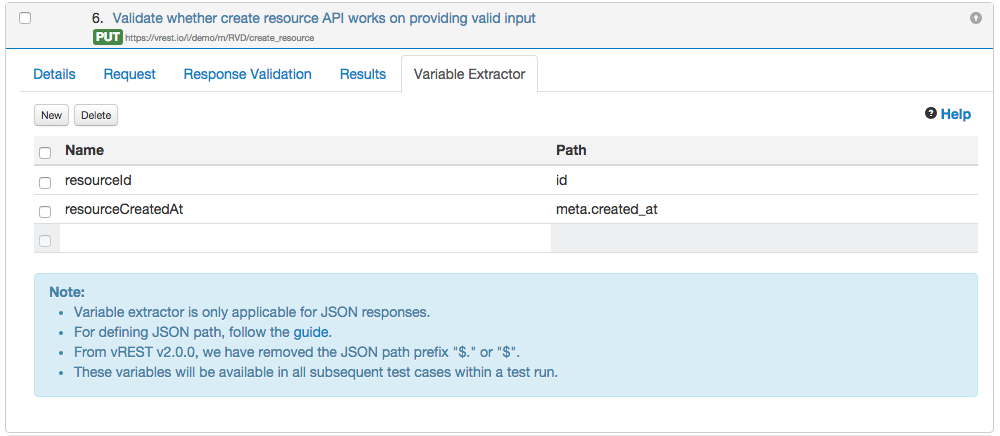| Excerpt | ||||||||||||
|---|---|---|---|---|---|---|---|---|---|---|---|---|
Variables can be extracted from Test Case's responses and can be used in subsequent HTTP requests (test cases). To extract the variable's values from test case's actual results, please follow the steps below:
Let us take an example, how we can extract a variable from API response:
|
Page Comparison
Manage space
Manage content
Integrations

